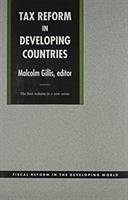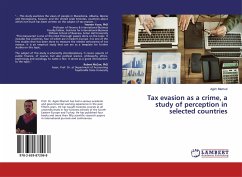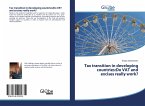This volume presents the work of experts (in most cases the very advisers who designed and helped implement the reforms) on the tax reform efforts of a dozen developing nations—from the restructuring of the economy of postwar Japan to the 1986 reforms in Jamaica. Among the many lessons learned from these efforts are that tax reform is most successful when tax administration is a central (rather than peripheral) focus of reform efforts, and when tax reform is specifically directed toward economic rather than noneconomic objectives. Other conclusions include the apparently mutually reinforcing nature of tax simplification and tax rate reduction, and the role of indirect tax reforms (such as the value-added tax) in successful reform undertakings.
Hinweis: Dieser Artikel kann nur an eine deutsche Lieferadresse ausgeliefert werden.
Hinweis: Dieser Artikel kann nur an eine deutsche Lieferadresse ausgeliefert werden.








